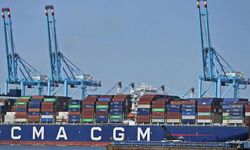Negotiations between the International Longshoremen’s Association (ILA) and terminal operators represented by the U.S. Maritime Alliance (USMX) are expected to resume on January 7, according to S&P Global’s Journal of Commerce. This development follows weeks of deadlock over the use of semi-automated equipment in U.S. East and Gulf Coast ports.
The current master contract, covering longshoremen at these ports, is set to expire at midnight on January 15. While the union secured a 60% wage increase in October after a brief strike, implementation was deferred until remaining contract issues, including automation and benefits, are resolved.
The USMX has offered to extend the existing contract structure to further review automation proposals, citing space constraints and the need for technological upgrades to handle increasing cargo volumes. The ILA, however, opposes automation, arguing it threatens jobs without improving productivity.
Major U.S. ports like New York-New Jersey currently lack automation, putting them behind global competitors. Meanwhile, some U.S. West Coast ports, under a different union, have adopted limited automation technologies.
Carriers such as Maersk and Hapag-Lloyd have alerted customers about possible service disruptions and announced surcharges in anticipation of a strike. Trade groups and stakeholders are urging both sides to avoid a prolonged work stoppage, warning of severe economic consequences.
President-elect Donald Trump has voiced strong support for the ILA, advocating against automation and urging respect for workers in the negotiations. As tensions escalate, shippers and port operators brace for potential disruptions starting January 16.






